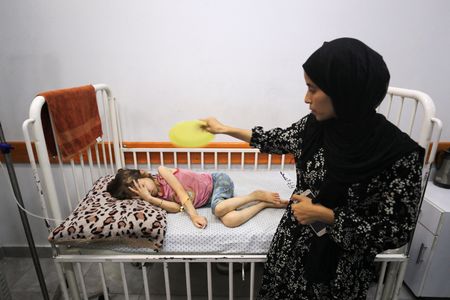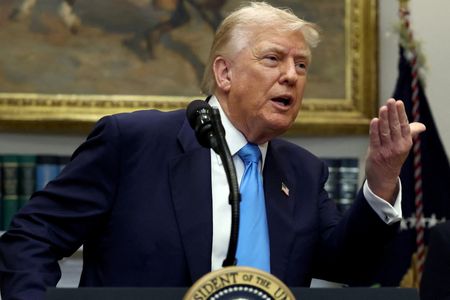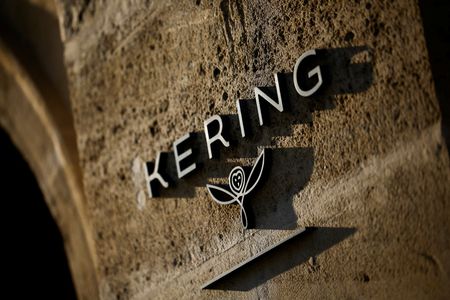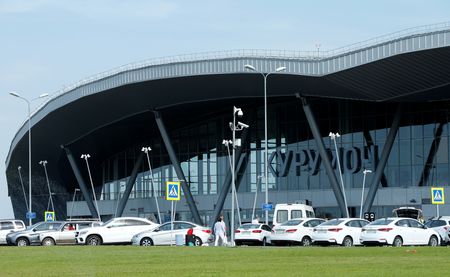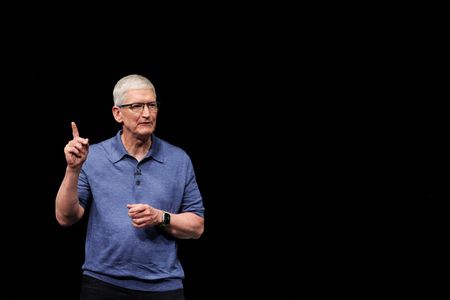By Maria Martinez
BERLIN (Reuters) – Initial projections of the result of Germany’s election on Sunday set the stage for protracted coalition talks, meaning Europe’s largest economy could face months of policy uncertainty prolonging its current stagnation.
The opposition conservatives won the election, putting leader Friedrich Merz on track to be the next chancellor. The far-right Alternative for Germany (AfD) came in second, its best ever result, exit polls showed.
It was far from clear, however, whether Merz would need a further one or two parties to form a coalition with a working majority in a fragmented parliament.
Coalition talks will be complicated and prone to setbacks, leaving consumer and business confidence subdued, said Carsten Brzeski, global head of macro at ING, adding it remained to be seen what policies the coalition partners could agree on.
“As long as the new government does not bring significant change, foreign investments will also be held back, weakening Germany’s economic outlook,” Brzeski said.
ECONOMIC LAGGARD
Germany has gone from being Europe’s economic powerhouse to becoming the euro zone’s growth laggard. How to revive the economy was has been one of the main election campaign topics.
It is still unclear how many parties will clear the 5% threshold needed to secure seats in parliament.
If the leftist BSW and the Free Democrats (FDP) stay below that threshold, a two-party coalition of Merz’s CDU/CSU and SPD would be possible. But if they both make it into parliament, it would have to be a three-party coalition with the ecologist Greens or the FDP, a staunch backer of fiscal austerity.
“A three-party coalition runs the risk of more muddling through and more stagnation unless all parties involved realise that this is the last chance to bring change and to prevent the AfD from getting stronger,” Brzeski said.
A three-way coalition could still implement some of the income and business tax cuts proposed by the CDU, but agreeing budgets and major structural reforms would be harder, said Franziska Palmas, senior Europe economist at Capital Economics.
The CDU and the Free Democrats propose reducing Germany’s combined corporate tax rate from approximately 30% to below 25%, bringing it closer to the OECD average of 23.85%.
“Cutting the combined corporate income tax rate would be a good first step toward making Germany’s corporate tax system more competitive,” said Alex Mengden from Tax Foundation Europe.
This change would boost Germany’s investment by 1.4%, GDP by 1%, and wages by 0.8%, according to estimates of Tax Foundation Europe.
Other parties have criticised the CDU, arguing that the party does not spell out how all its promised tax cuts would be financed. The full CDU reform programme would reduce state revenue by 97 billion euros ($102 billion) per year, according to an Ifo study.
Holger Schmieding, chief economist at Berenberg, said he expected Germany to get some pro-growth reforms but added:
“Whether it will be a small or a major package depends on two things: the negotiating skills of chancellor-to-be Friedrich Merz and, more importantly, whether the debt brake can be reformed.”
If the FDP makes it into parliament, a reform of Germany’s constitutional debt brake, which limits the federal government’s budget deficit to a mere 0.35% of output, would be difficult.
“If the FDP is needed for debt-brake reform or for a coalition, the changes to the fiscal straightjacket would be more modest,” said Schmieding, adding that the emphasis in that case would likely be more on pro-growth supply-side reforms.
Palmas said debt brake reform looked in the balance because the main parties which could have supported it – the CDU, SPD and Greens – still might fall short of the two-third majority needed to approve it.
“I still wouldn’t completely rule it out because it will be extremely difficult for the next government to produce budgets that comply with the current very strict rule, especially, if defence spending needs to be raised,” Palmas said.
($1 = 0.9527 euros)
(Reporting by Maria Martinez; editing by Mark John and Keith Weir)



